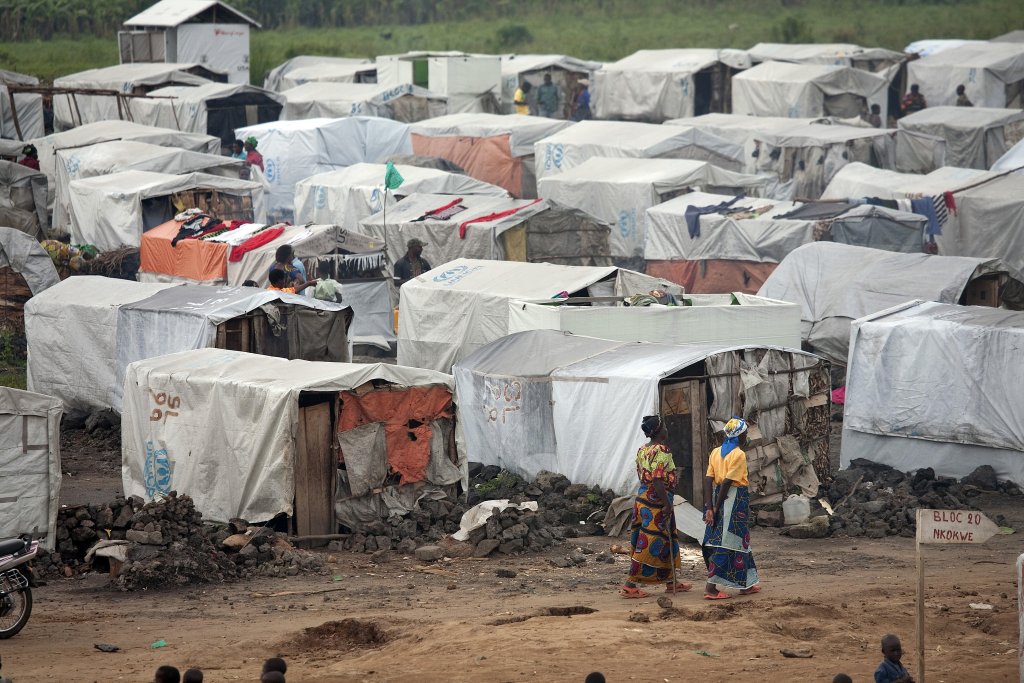
The political climate–and actual climate–of a humanitarian crisis can change at any moment. It can be extremely difficult to imagine life as someone living through an emergency. But whatever their situation may be, we know that women and girls need access to birth control, prenatal and safe delivery care, and support after experiencing gender-based violence.
At the beginning of this year, we reflected on the biggest humanitarian crises of 2020. Now, halfway through 2021, the world is a little different. Climate change has left some parts of the world on fire while others are underwater. And, the vaccine rollout—or lack thereof—has left countries battling COVID-19 breakouts, misinformation campaigns, or both. These global emergencies complicate already fragile regional or local crises. Here are the latest updates on the world’s most urgent situations:
Yemen
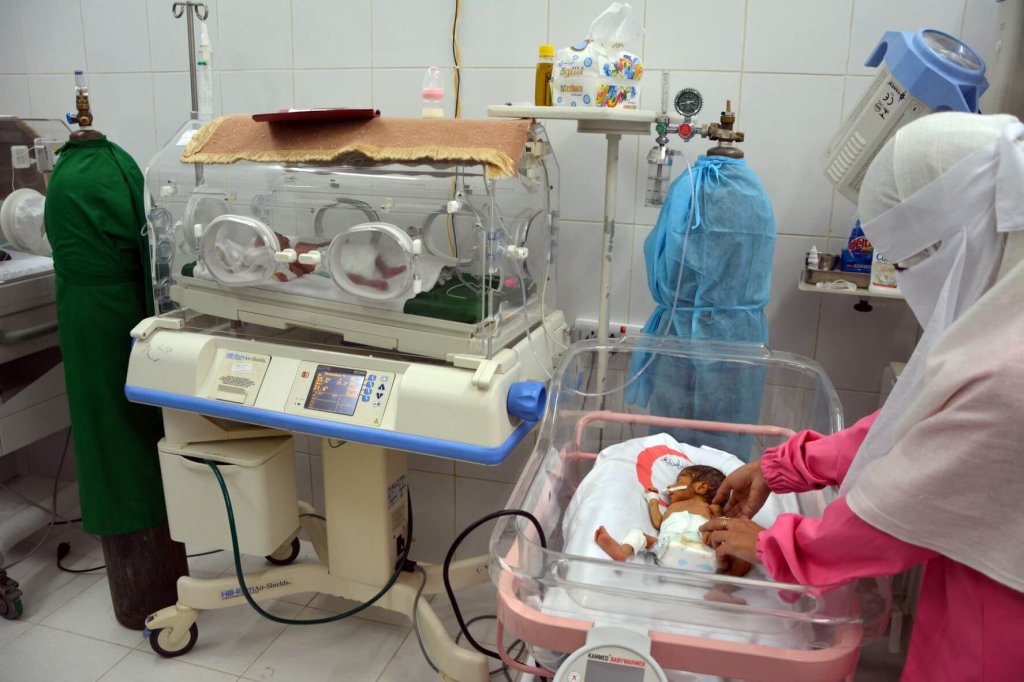
Often known as “the world’s worst humanitarian crisis,” the Yemeni people have faced hardship after hardship. A protracted civil war has led to economic instability, a fuel shortage, widespread poverty, and, most urgently, looming famine. According to the World Food Program, a UNFPA partner on the ground in Yemen, more than 16 million people are at risk of famine. Of those at risk, 1.2 million are pregnant women for whom malnourishment increases the risk of pregnancy and childbirth complications. Every two hours, one of these women dies from preventable complications.
Huda was almost one of these women. She decided to give birth at home because she couldn’t afford the cost of transportation to a health facility. But tragically, she experienced childbirth complications and desperately needed a Caesarean section. Huda’s life was saved at a UNFPA clinic that had recently been upgraded thanks to the support of donors like you. In 2021, UNFPA has upgraded clinics, like the one where Huda gave birth, and has prioritized the mental health needs of Yemeni women and girls in this humanitarian crisis.
Syria
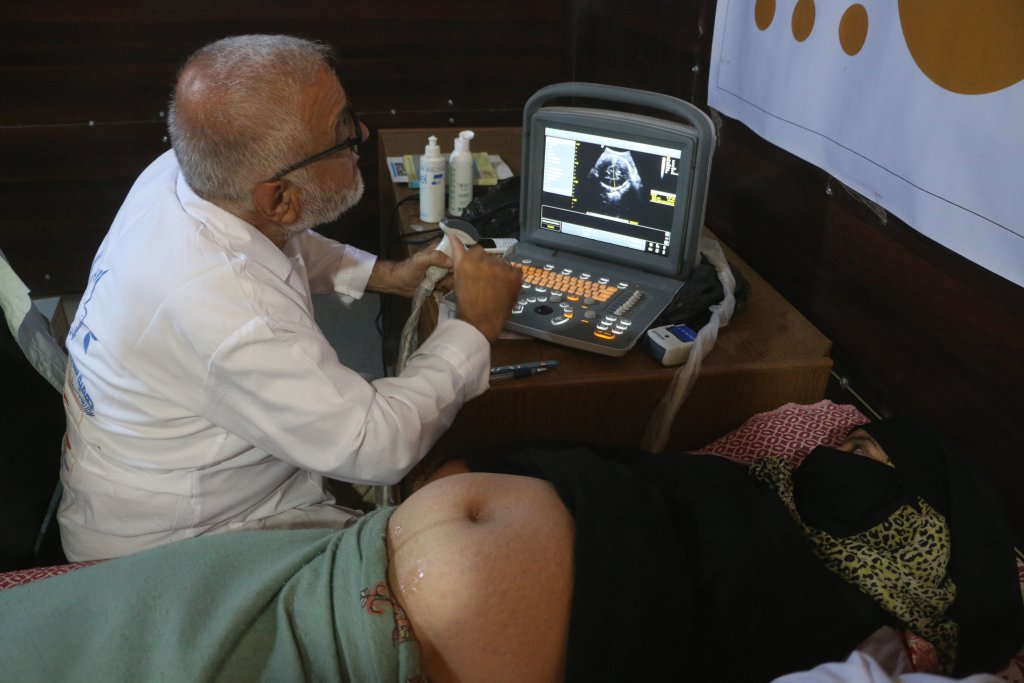
Now more than a decade old, the Syrian Civil War has led to the world’s largest refugee crisis with 13.5 million Syrians displaced from their homes. Last year, 4.5 million additional Syrians experienced food insecurity, bringing the total number of hungry Syrians to 12.4 million. Economic instability is rampant. 90% of the population lives in poverty, and delivering humanitarian aid to Syria is becoming increasingly difficult. Girls are particularly at risk with as many as 1 in 4 refugee girls become child brides.
However, despite the bleakness of the emergency in Syria, we will provide lifesaving care, no matter what. In 2021, UNFPA has already provided 85,000 pregnant women and new moms with cash assistance and has reached more than 500,000 women and girls with sexual and reproductive health services like birth control and prenatal care. Your ongoing support is urgently needed to ensure that women and girls have access to the lifesaving care they need.
Lebanon
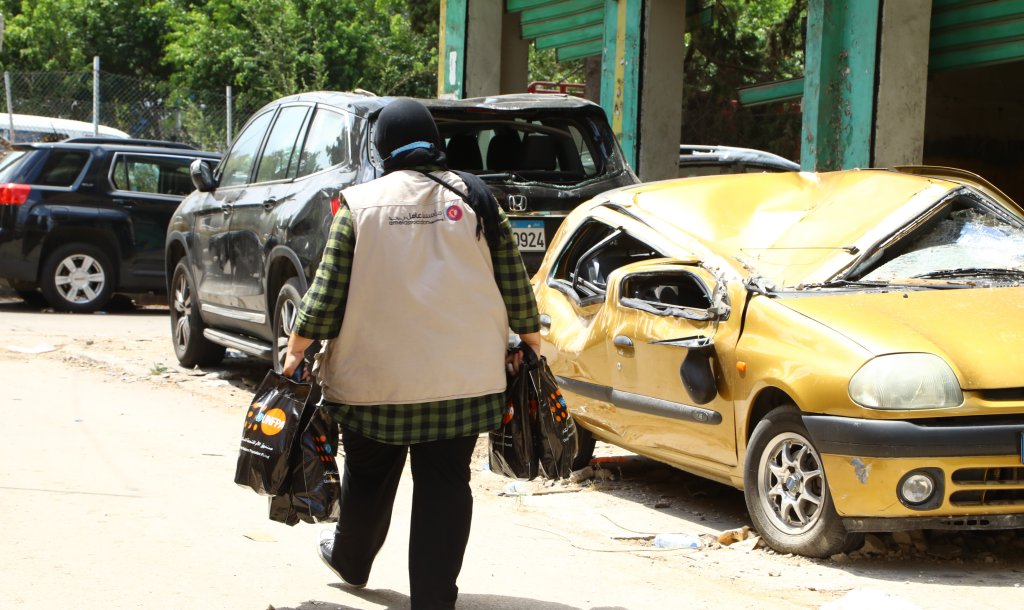
Nearly one year ago, the port of Beirut, Lebanon exploded, killing hundreds and injuring thousands. In the aftermath of the blast, the government of Lebanon resigned en masse. Today, the lack of leadership is compounding Lebanon’s problems. The deep economic crisis, the COVID-19 pandemic, and fuel and medicine shortages are putting lives at risk. Women and girls are especially vulnerable as gender-based violence tends to increase during periods of high stress and uncertainty.
Even before the blast, UNFPA had been on the ground there providing sexual and reproductive health care. Since then, however, UNFPA has increased mental health support, especially for survivors of violence. The agency has also engaged youth in rebuilding their communities.
Democratic Republic of Congo
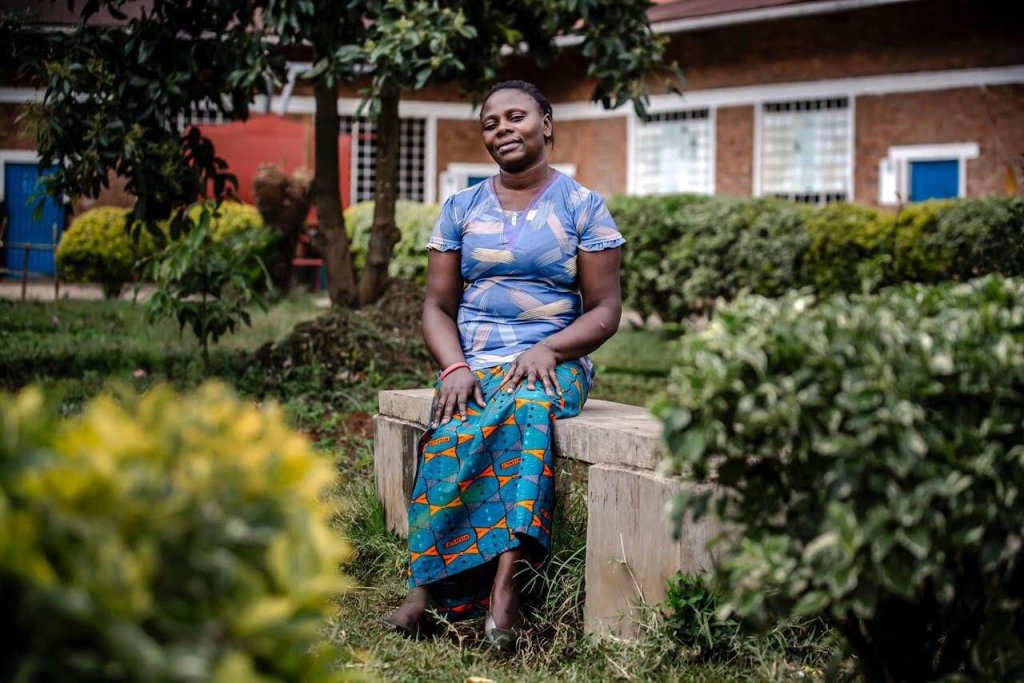
Life is fragile in the Democratic Republic of Congo, where communities are rebuilding after conflict and repeated outbreaks of Ebola. Sexual violence is prevalent, and the addition of the COVID-19 pandemic has only put women and girls further at risk. Benedictine, 15, and Josephine, 17, know this all too well. Both girls were raped–Benedictine on her way to a shop and Josephine at a friend’s birthday party– and became pregnant as a result of the attacks. But, UNFPA cared for both girls, including providing mental health counseling and prenatal care. Benedictine says, “Today I feel good because I have been treated and my attackers have been arrested. I can move around safely…Thanks to you I can smile and take back my life.”
There has been another outbreak of Ebola in 2021 and, coupled with continued widespread displacement, the health and safety of many Congolese people are at risk in this humanitarian crisis. UNFPA supports Ebola patients and their health care workers. The agency also has a robust youth program through which young people can receive comprehensive sexuality education and family planning. UNFPA also provides prenatal and safe delivery care. Both of these services are critical in a country with high rates of maternal death.
Venezuela
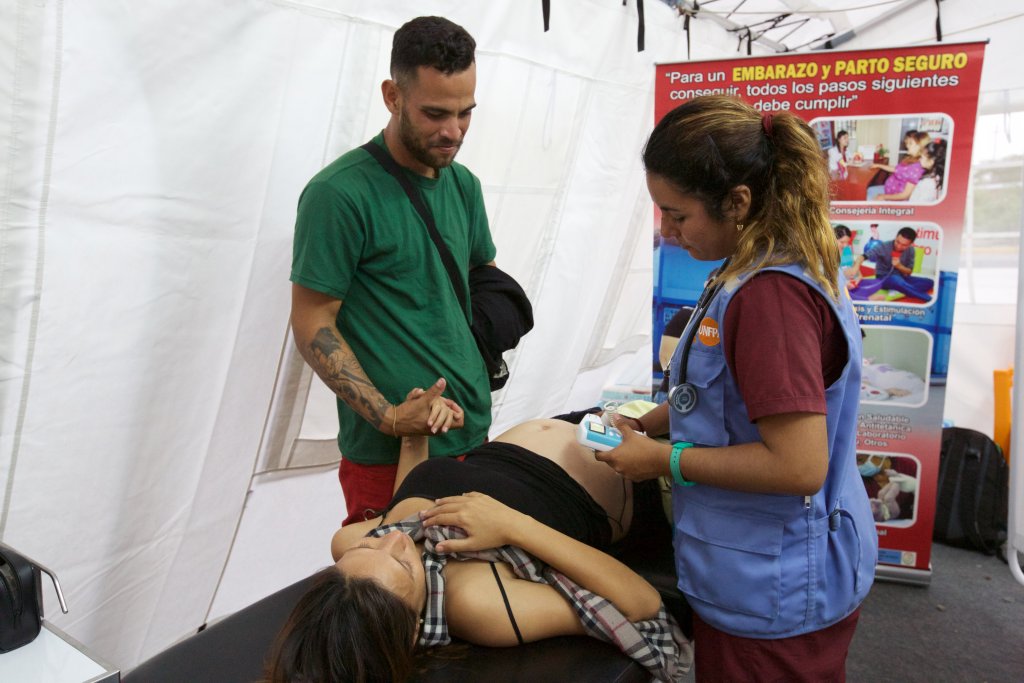
Political instability and economic crisis have pushed Venezuelans to the brink. Over 5 million have fled to safety in neighboring countries like Colombia and Brazil. Those who have stayed have limited access to sexual and reproductive health care and face rising rates of violence. Further, a birth control shortage has contributed to rising rates of teenage pregnancy and maternal death. Maira, an indigenous woman and a mother of six, has lived the consequences of this lack of care. She remembers, “The last time I was in labor, I almost lost my life.” Today, Maira is done having children. She received an IUD from UNFPA to protect herself from unintended pregnancy and maternal death. Now, she is excited because, “I am going to see the future of my daughters.”
Countless women across Venezuela have found themselves in situations like Maira, but, with your support, we can end preventable maternal death everywhere. In 2021, UNFPA is working to strengthen the health care system in Venezuela and on its borders, so migrants have access to care, no matter the humanitarian crisis. Migrant women are especially at risk for sexual violence, trafficking, and transactional sex. UNFPA is increasing its support for survivors of gender-based violence, including by distributing dignity kits and providing access to gender-based violence service centers.
Ethiopia
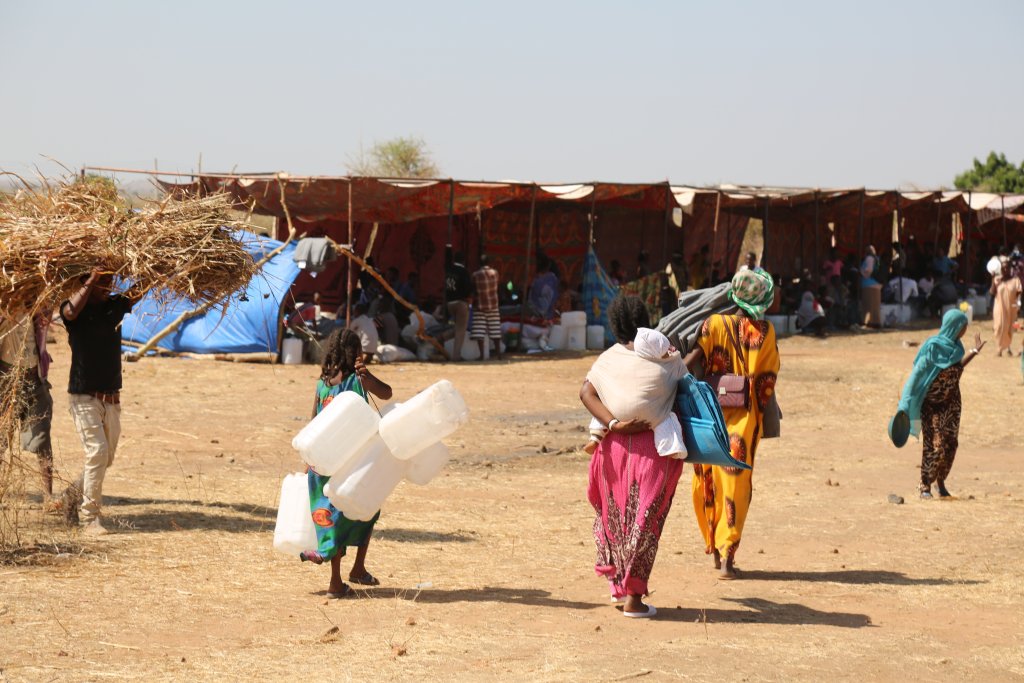
In late 2020, conflict broke out between Ethiopia’s national government and the regional government of Tigray. Since then, 2 million people have been displaced and reports of massacres and mass rape have surfaced. Before the conflict, Merhawit had been an accountant and was saving up to give her future children a promising start. Now, she is due to have her first child any day. She says, “I think about my situation day and night. How am I going to keep my baby alive with no income and living in such grueling conditions?” Luckily, Merhawit has been able to access prenatal care at a UNFPA clinic in a camp for displaced Tigrayans. When she goes into labor, she can receive safe delivery care there, too.
UNFPA has been on the ground in Ethiopia providing care to women and girls since long before the emergency in Tigray. The agency has worked to end female genital mutilation, a dangerous harmful practice, and has made motherhood safer. However, the conflict and the COVID-19 pandemic have threatened progress made in these areas. Still, health care workers, like Merhawit’s midwife Berhe, remain hopeful. She said, “Every time I can save a life or help someone like Ms. Merhawit, I feel really proud of what I do. We won’t stop until we can ensure every childbirth is safe again in Tigray.” With your support, pregnant women and the health care workers who keep them safe can continue to live healthy lives and provide lifesaving care, even during conflict.
Afghanistan
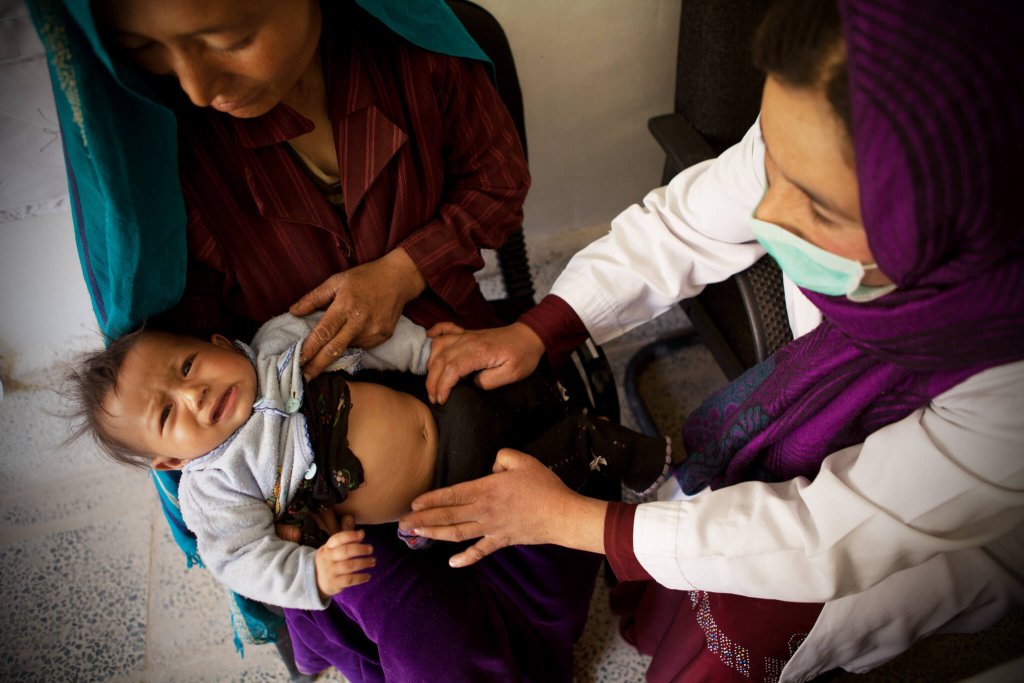
Women across the country are worried about their rights being violated. Eruptions of violence earlier in 2021 have only exacerbated those fears and the humanitarian crisis. Now, upwards of 270,000 Afghans have become displaced and tens of thousands of others are leaving the country for Turkey and Greece. About 3.5 million Afghans have found refuge in Pakistan and Iran over the last few decades of instability, but these host countries are pushing back against the arrival of more migrants, putting the lives of Afghans at home and abroad in a precarious position.
When women and girls migrate, they are more vulnerable to gender-based violence. UNFPA is working to ensure that if they experience violence, they can receive care. Azita has been a first responder to gender-based violence for over five years in her community. It has taken time to build trust in the community as some families worry that she may involve law enforcement in what are seen as private affairs. But, Azita focuses on providing survivors with the care they need. She says, “I’m not giving up. I am committed to continue.”
Bangladesh
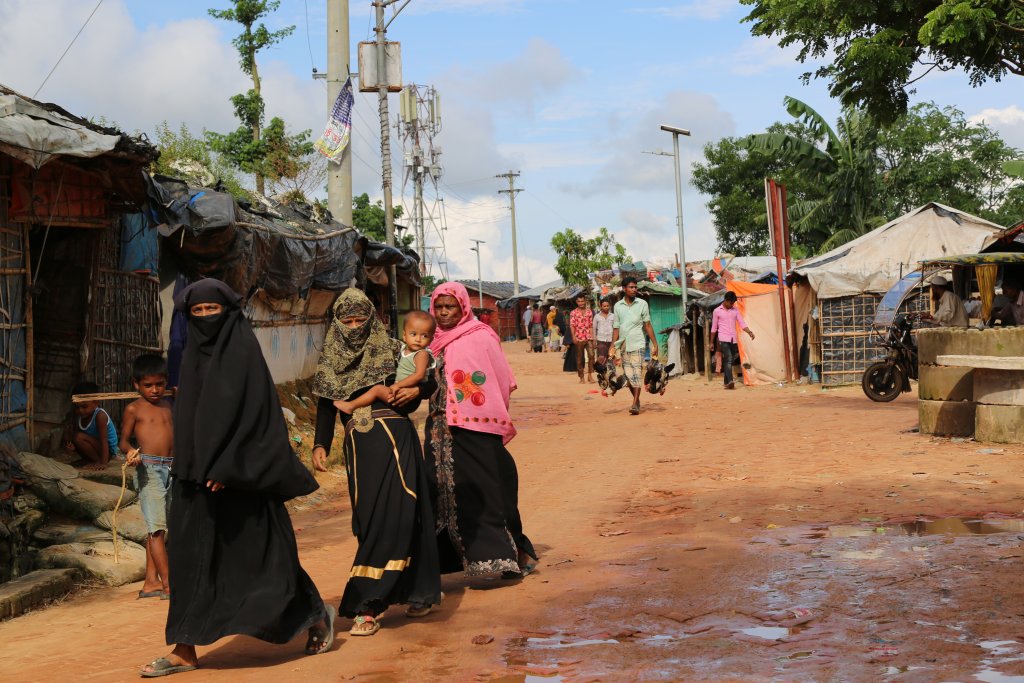
Nearly 1 million Rohingya refugees have made their home in Bangladesh over the last several years. But, that could begin to change. Heightened gang violence in the camps has led Bangladeshi officials to increase security around the refugee camps, including by installing barbed wire fencing. Tragically, when a deadly fire broke out in the camps in March 2021, the fencing made the fire and the humanitarian crisis in Bangladesh even more catastrophic. According to the International Rescue Committee, “Early reports indicate that newly installed barbed wire fencing seriously restricted the ability of refugees to flee the fire, including especially vulnerable women and girls.” Already, thousands of Rohingya refugees have fled pervasive violence, including toward women and girls, in the refugee camps for a small island off the coast.
UNFPA is working to make life safer for Rohingya women and girls. In the last several years, the agency has made motherhood much safer by increasing access to prenatal and safe delivery care. Salma, for example, suffered 9 miscarriages before she was able to safely give birth to her daughter at a UNFPA clinic. UNFPA is also providing care to transgender refugees, including treatment for those with HIV. Finally, women and girls can visit safe spaces, where they can receive care for gender-based violence and resources to support their sexual and reproductive health. Mohsina, who uses a wheelchair, often faces discrimination because of her disability and struggles to make friends with girls her age. She was able to meet with other girls and receive a COVID-19 dignity kit at her local UNFPA safe space. Now, she has everything she needs to protect herself from coronavirus.
Haiti
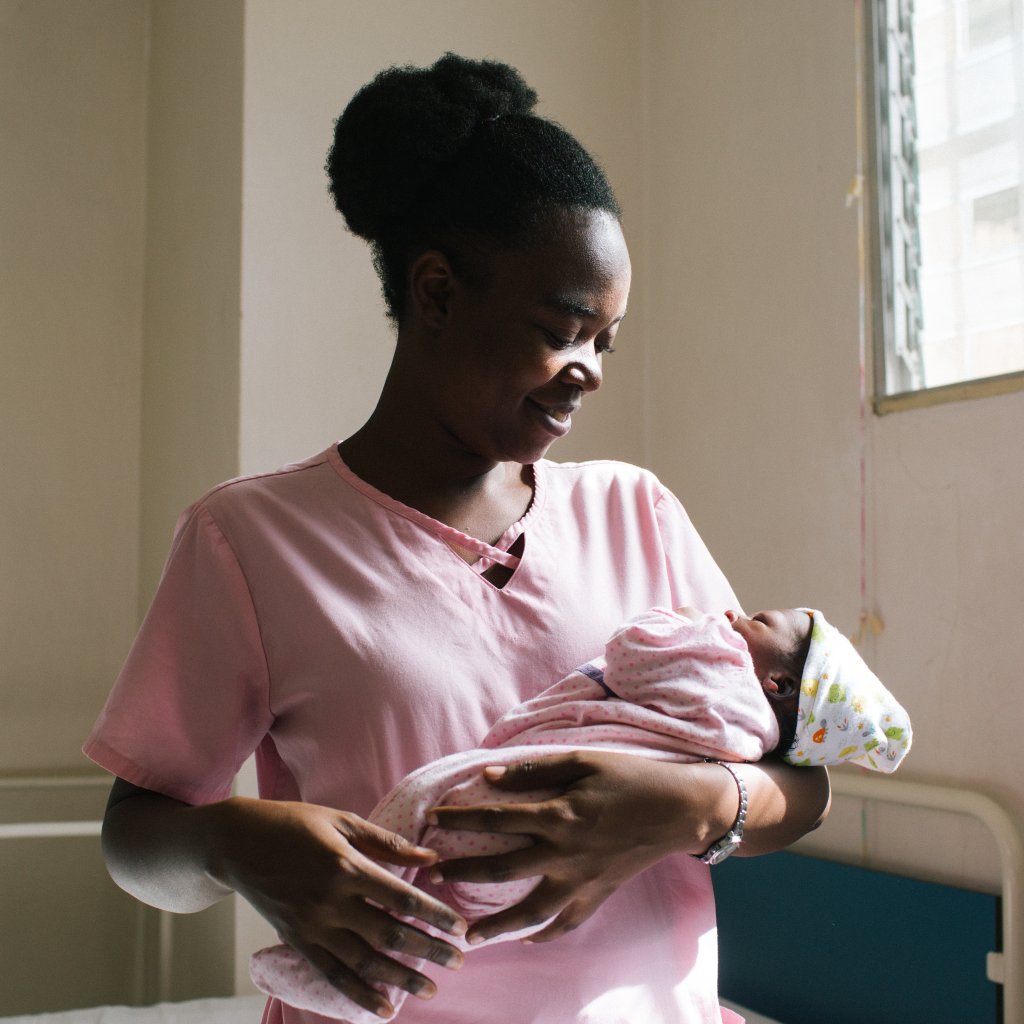
Last year, destructive tropical storms and the COVID-19 pandemic made it more difficult to access health care in Haiti. Then, in July 2021, Haiti’s president was assassinated and the humanitarian crisis there worsened. Gang violence has broken out across the country and women’s and girls’ lives are at risk. The violence displaced Anita, one Haitian woman, from her home. She didn’t want to become pregnant during this tumultuous time. Luckily, she received a form of long-acting birth control from a UNFPA mobile clinic.
UNFPA is working in Haiti to strengthen the health care system in Haiti by training midwives, providing clinics with equipment and medicines, operating mobile clinics, and ensuring that the needs of women and girls are met. Still, the recent violence and a lack of trust in public institutions threaten the health of Haiti’s women and girls. Your donation goes toward reaching the world’s most vulnerable, like Anita in Haiti.